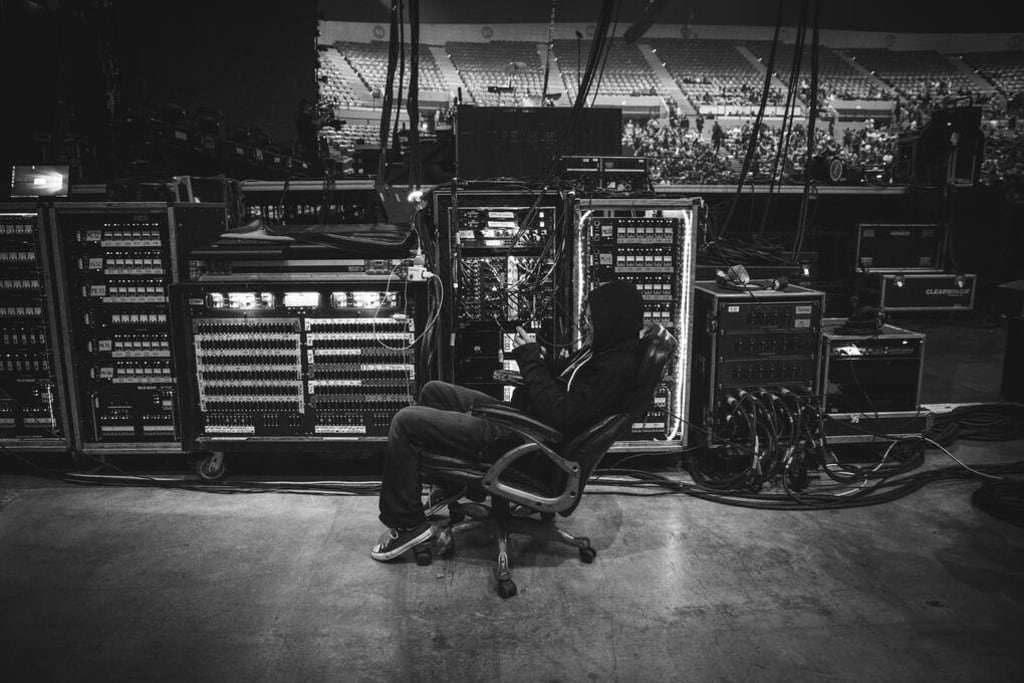How the Music Industry Works: The Business of Music
How the Music Industry Works

Behind every hit song lies a well-oiled machine of business operations. The music industry is not just about creativity and talent; it's also a complex business that involves numerous stakeholders, contracts, and revenue streams. Understanding the business side of the music industry is essential for anyone looking to succeed in this field. This article will explore the business side of the music industry, providing insights into how it operates and generates income.
1. Revenue Streams in the Music Industry
The music industry generates revenue through various streams, each playing a crucial role in an artist's income.
a. Physical and Digital Sales
Despite the rise of digital formats, physical sales (vinyl, CDs) still hold value, especially among collectors and audiophiles. Digital sales include downloads from platforms like iTunes, though they have seen a decline with the advent of streaming.
b. Streaming Services
Platforms like Spotify, Apple Music, and Tidal have transformed how music is consumed. Artists earn money based on the number of streams their songs receive. While per-stream payouts are relatively low, the cumulative effect can be significant for popular tracks.
c. Live Performances
Concerts and tours are major revenue sources for artists. Ticket sales, merchandise, and VIP packages contribute to income, making live performances a crucial part of an artist's business strategy.
d. Merchandise Sales
Selling branded merchandise such as T-shirts, posters, and accessories provides additional revenue and helps in brand building. Merchandise can be sold at concerts, online, and through partnerships with retailers.
e. Licensing Deals
Music licensing involves granting permission to use music in various media, including films, TV shows, commercials, and video games. These deals can be lucrative and provide significant exposure for artists.
f. Royalties
Artists earn royalties whenever their music is played on the radio, in public venues, or streamed online. Royalties are managed through performance rights organizations (PROs) like ASCAP, BMI, and SESAC.
2. Record Deals and Advances
Record deals are contracts between artists and record labels. They typically include an advance payment to the artist, which is recouped from future earnings.
a. Major Label Deals
Major labels like Universal Music Group, Sony Music, and Warner Music offer substantial resources for production, marketing, and distribution. However, they often take a significant share of the artist's revenue.
b. Independent Label Deals
Independent labels generally offer more creative freedom and personalized attention. They might provide smaller advances but take a smaller cut of the revenue, making them an attractive option for many artists.
c. Recoupment and Advances
Advances are upfront payments that must be recouped from the artist's earnings before they receive additional income. Understanding the terms of recoupment is crucial to avoid financial pitfalls.
3. Royalties and Licensing
Royalties are payments made to artists and songwriters for the use of their music.
a. Mechanical Royalties
Earned from physical and digital sales, mechanical royalties are paid to songwriters and publishers whenever a song is reproduced or distributed.
b. Performance Royalties
Performance royalties are earned when a song is played on the radio, TV, or in public venues. PROs collect these royalties on behalf of artists and songwriters.
c. Synchronization (Sync) Licensing
Sync licensing allows music to be used in visual media like films, TV shows, and advertisements. These deals can provide significant income and exposure.
4. Marketing and Promotion Budgets
Marketing and promotion are critical to an artist's success. Record labels allocate significant budgets to these activities to ensure maximum exposure.
a. Social Media Campaigns
Leveraging platforms like Instagram, TikTok, and Twitter, artists can engage directly with fans, promote new releases, and build their brand.
b. Music Videos
High-quality music videos are essential for visual storytelling and promotion. They can be shared on platforms like YouTube, attracting millions of views and boosting song popularity.
c. Press and Public Relations
Press releases, interviews, and media coverage help maintain public interest and build an artist's reputation. Publicists play a key role in managing these activities.
5. Touring and Live Performances
Touring is a major revenue stream for many artists. Live performances not only generate income from ticket sales but also boost album sales and streaming numbers. Successful tours require careful planning and substantial investment.
a. Tour Management
Effective tour management involves planning logistics, booking venues, coordinating with promoters, and managing finances. A well-organized tour can significantly enhance an artist's career.
b. Revenue from Live Shows
Revenue comes from ticket sales, merchandise, and sponsorships. VIP packages and meet-and-greet opportunities can also provide additional income.
6. Merchandise Sales
Merchandise, such as T-shirts, posters, and other branded items, provides an additional income stream. These products are often sold at concerts and through online stores, enhancing the artist's brand and revenue.
a. Online Stores
Many artists set up online stores to sell merchandise directly to fans. This approach offers higher profit margins and direct engagement with the audience.
b. Brand Collaborations
Collaborating with fashion brands or other industries can lead to unique merchandise lines and broaden an artist's market reach.
7. Management and Representation
Artist managers and agents play crucial roles in guiding careers. They handle business affairs, negotiate contracts, and create opportunities for their clients. A good manager can be the difference between a struggling artist and a successful one.
a. Role of Managers
Managers oversee an artist's career strategy, including marketing, touring, and financial planning. They act as a liaison between the artist and other industry professionals.
b. Role of Agents
Agents focus on booking live performances and appearances. They work to secure lucrative gigs and ensure that artists get the best possible deals.
8. Legal Aspects
The music industry is heavily regulated by laws and contracts. Understanding copyright, royalties, and licensing is crucial for artists to protect their work and earn revenue. Legal professionals often play a key role in navigating these complexities.
a. Copyright Law
Copyright laws protect the intellectual property rights of creators. Artists must understand how to register and enforce their copyrights to prevent unauthorized use.
b. Contracts and Agreements
Contracts govern relationships between artists and various stakeholders, including record labels, managers, and promoters. Legal counsel is essential to ensure that contracts are fair and beneficial.
c. Dispute Resolution
Disputes over royalties, contracts, and intellectual property are common in the music industry. Legal professionals help resolve these issues through negotiation, mediation, or litigation.
9. Evolving Industry Trends
The music industry is constantly evolving, influenced by technological advancements and changing consumer behaviors. Emerging trends such as virtual concerts, NFT (non-fungible token) releases, and direct-to-fan platforms are reshaping how music is consumed and monetized. Staying updated with these trends can provide new opportunities for growth and innovation.
a. Virtual Concerts
The rise of virtual reality and live streaming technology has made virtual concerts a viable option. These events can reach global audiences and provide unique, immersive experiences.
b. NFTs and Blockchain
NFTs allow artists to sell digital collectibles and experiences directly to fans. Blockchain technology promises greater transparency and efficiency in managing music rights and royalties.
c. Direct-to-Fan Platforms
Platforms like Patreon and Bandcamp enable artists to build closer relationships with their fans. These platforms allow for direct sales, exclusive content, and fan support.
The business of music is a multifaceted operation that requires a blend of creativity and business acumen. By understanding the various revenue streams and business practices, artists can better navigate the industry and maximize their earnings. For those looking to enter the music business, knowledge of these aspects is crucial for success.
Are you interested in the business side of the music industry? Share your thoughts and experiences in the comments below! If you found this article informative, please like and share it with your network.
About the Creator
Music Industry Updates
Welcome to Music Industry Updates, your go-to hub for the latest happenings in the music world.
Stay tuned, stay informed, and stay inspired with Music Pulse – where every beat counts.
Enjoyed the story? Support the Creator.
Subscribe for free to receive all their stories in your feed. You could also pledge your support or give them a one-off tip, letting them know you appreciate their work.






Comments
There are no comments for this story
Be the first to respond and start the conversation.